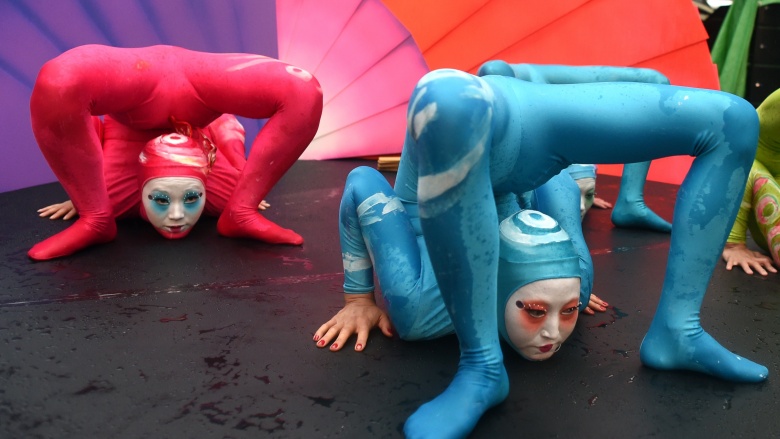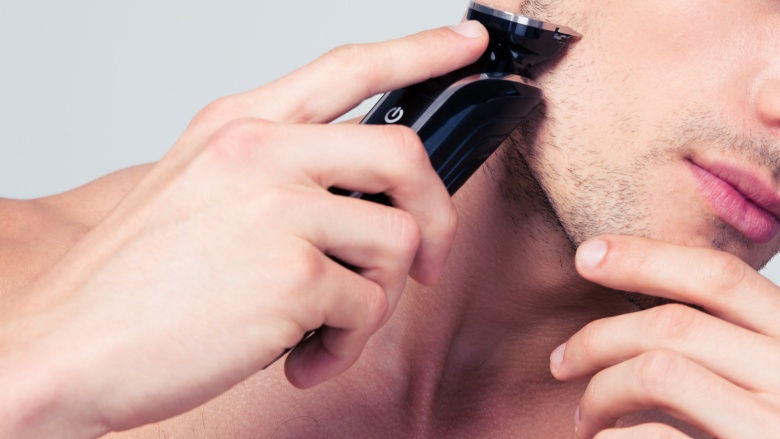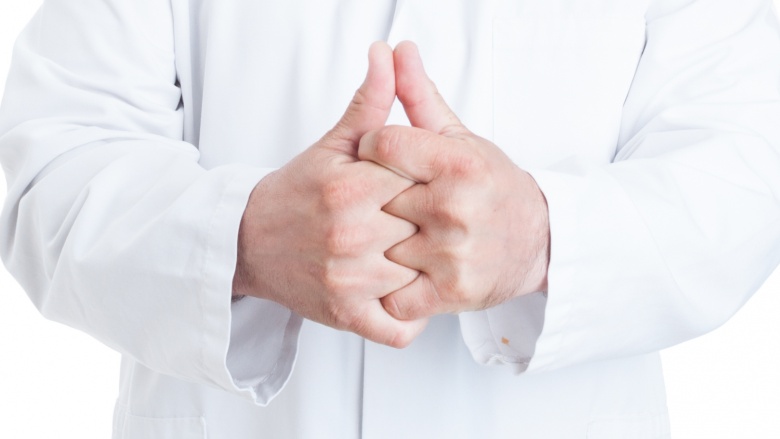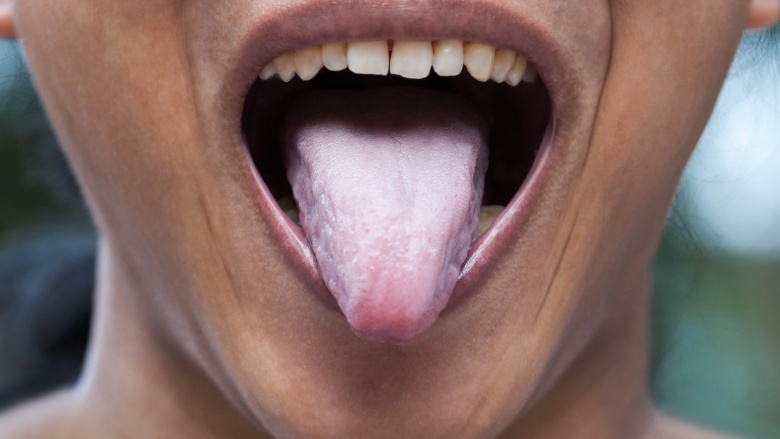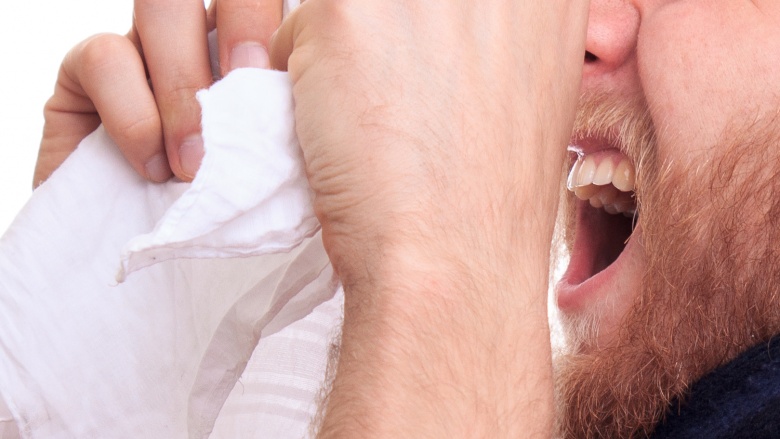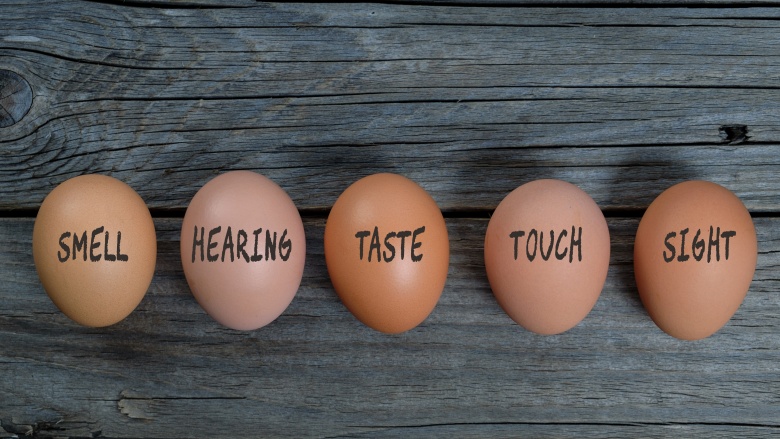12 Things You Assumed Were True About The Human Body, But Aren't
There are many pieces of incorrect conventional wisdom about the human body that we learned as children, or absorbed through popular culture. One prominent example is the myth that human beings only use 10% of their brain. This notion has been propagated by movies like Lucy, and is thus accepted by far too many people. Following suit, here are some other examples of things you likely assumed were true about the human body, but are definitely not.
You will explode or freeze in space without a suit
A common movie trope is that a hapless astronaut without a suit will explode when exposed to the vacuum of outer space. In reality, the human body can withstand this difference in pressure without bursting. Your body will expand as gases evacuate, but your skin will keep you intact. Also, you will not immediately freeze in space, since a vacuum cannot transfer heat that quickly away from your body.
So what does happen? Bubbles of gas immediately begin to form in your bloodstream, and then block circulation. This causes you to black out from lack of oxygen in about 10-15 seconds — You're effectively dead about two minutes later. We know this from experiments on animals, and accidents during the space program. Your lungs could also burst if you chose to hold your breath, similar to when scuba divers suffer expansion injuries after ascending while holding their breath.
None of this sounds pleasant by any means, but look on the bright side — at least you could still have an open-casket funeral.
People can be double-jointed
Everyone knew the one kid in school — let's call him Jimmy — who liked to gross out everyone by showing off his double-jointed arms. But alas, poor Jimmy, you aren't some sort of comic book hero with mutant powers. There is actually no such thing as having double-joints. Some people genetically have more flexible ligaments or smaller bones that allow them to bend their joints farther than others. In scientific circles this is called joint hypermobility. People who have "double-jointed" arms, for example, can bend their arm backward, farther than 180 degrees. This is likely because the bone in the elbow that prevents your arm from bending further — the olecranon — is a bit smaller in these people.
Shaving causes hair to grow back thicker and faster
A favorite misconception among eager teenage boys is that hair grows back faster and thicker after you shave. This, like many things teenagers think, is dead wrong. The only part of your hair that ever grows is the follicle below your skin — The visible portion of hair that you shave contains dead cells. Thus, the part of the hair that grows is unaffected by your morning routine. Your returning hair may appear thicker, but that is likely because the stubble can be darker.
There are other explanations, too. Many body functions that affect hair growth may coincide with shaving. Teenagers, for example, may notice their hair growing back faster and thicker after shaving simply because their hormones are accelerating hair growth — shaving has nothing to do with it, no matter how much they brag to their prom date.
Knuckle-cracking causes arthritis
Your mom would often nag you growing up to stop popping your knuckles, or else you'll get arthritis. Sorry mom, but there is absolutely no evidence that knuckle-cracking does this. In truth, simply describing the practice as "cracking" is wrong! See, the popping sound you hear is caused by gas bubbles that burst in the fluid surrounding your joints. It takes some time for this gas to dissolve again into the fluid, which is why you must wait awhile before you can crack (or rather, bubble-pop) the joint again.
However, although this act doesn't cause arthritis, there is evidence that it can lead to swollen hands and reduced grip strength. So maybe don't do it as much as you feel you should. Habitual cracking can also annoy or gross out your friends and family — Fortunately, anywhere from 25-54% of people "crack," so start a Meetup.com group, find some knuckle-loving buddies near you, and get, well, cracking!
Taste and the tongue map
While learning about the sense of taste, many of our teachers presented us with an illustration that show taste centers located in different parts of your tongue. This "tongue map" indicates that parts of your tongue are more sensitive to one of four tastes — sweet, salty, bitter, and sour. You can view an example of this illustration here.
And now that you've seen it, just go ahead and forget it. It's hogwash. The average human tongue has about 10,000 tastebuds, each of which has about 100 taste receptors. None of them are confined to certain places on your tongue. This is why a bitter lemon will make your face scrunch up, no matter where you place it in your mouth.
Reading/watching TV in poor light harms your eyes
If you're like most children, your parents likely implanted into your young mind that reading or watching TV in the dark would damage your eyes. They couldn't have been any more wrong — Although it may cause a headache or eye strain, reading Twilight in the dark will not cause any permanent damage, though reading all that terrible dialogue will probably damage your soul.
Similarly, sitting too close to the television will also not irreparably damage your eyesight, no more than staring at any other dim light would. Declining eyesight is more attributable to age and genetic history, not the brightness of your desk lamp or the glow of your HD. You want to hurt your eyes while looking at something bright? Go outside and stare down the Sun.
Your heart stops when you sneeze
Some people, choosing to reject even the though of basic science, believe in the myth that your heart briefly stops when you sneeze. What really happens is that your heart rate changes in response to the fluctuations in pressure as you inhale before a sneeze and exhale afterward. At no point, however, does your heart completely stop, because that's just ridiculous. If that were the case, we'd likely see countless sneeze-induced heart attack victims whose hearts never started again. It would also cause the 18-35% of people who sneeze in response to sudden bright light to avoid the Sun like vampires.
Urine alleviates a jellyfish sting
You're wading through the surf, wondering if the woman in the bikini notices you, when all of the sudden you feel an incredible pain on your leg. You look down and see a jellyfish's tentacles clinging to your appendage. You throw off the offending creature and quickly make your way to the shore. As you sit in the sand, in excruciating pain, your best friend runs over, unzips his trousers, and begins urinating on your leg. He's not doing this to be rude or weird, but to save your life, as conventional wisdom tells us that urinating on a jellyfish sting is the best way to best way to alleviate the pain.
However, all your friend is actually doing is being weird, because in reality, urine makes the sting much worse. Fresh water activates the jellyfish's stinger cells, and your urine is about 95% fresh water. So now you're in even more pain, covered in your friends' pee, and that blonde in the bikini is shaking her head. Thanks, friend!
Want to actually cure a jellyfish sting? One of the best treatments is vinegar, as the acetic acid in the vinegar neutralizes the stinger cells. Even then, it will take some time to fully recover.
Humans have only 5 senses
We're taught from an early age that human beings have five senses — smell, touch, taste, sight, and hearing. This claim likely originates from Aristotle's work, On the Soul. The thing is, while we certainly possess these five senses, humans actually have several more. Rather prominently, humans have proprioception, which is the sense of where all our body parts are at any time. Proprioception is why you can close your eyes and touch your finger to your nose, or why we rarely wake up on the middle of the night frantically wondering where our feet went.
Other senses we have include equilibrioception (balance), nociception (pain), thermoception (heat), and temporal perception (time). Unfortunately, telekinesis and telepathy are still only in the realms of science fiction.
It takes seven years to digest chewing gum
Teachers in elementary school acted like chewing gum was tantamount to burning the American flag. In response to being told to spit out their offending Bubblicious, some students elected instead to swallow their chewing gum. The teacher then scolded the student by saying, "That'll take seven years for you to digest!" Fortunately, your third-grade language arts teacher didn't deal much with science for a reason. While it's true that our bodies do not have the ability to digest gum, it doesn't stay there forever or anything. Rather, it passes out of us — just like indigestible seeds, kernels of corn, etc. — during our trips to the bathroom. In short, you'll have more trouble getting chewing gum off your shoe than eliminating it from your body.
Milk causes mucus production
You've probably been advised by a friend to avoid milk when you have a cold. The reason, they say, is that milk incites mucus production. Your throat full of phlegm will only grow worse if you drink a glass of 1% milk. But is this true? No, it isn't. Dairy products can make phlegm thicker, but it doesn't cause your body to produce more mucus. One study found that, "[N]o statistically significant overall association can be detected between milk and dairy product intake and symptoms of mucus production in healthy adults, either asymptomatic or symptomatic, with rhinovirus infection." You may have your reasons to avoid milk, but becoming the living embodiment of Boogerman shouldn't be one of them.
Alcohol makes you warmer
Is there a better way to pass the cold, winter nights than a few glasses of wine and a DVD of John Carpenter's The Thing? Well, maybe not the former (and even the latter's debatable). A popular misconception is that drinking alcohol makes you warmer, and while it certainly can make you feel less chilly, that doesn't mean you're suddenly warm.
The human body responds to alcohol by increasing blood flow to the skin. This sensation of warmth belies the fact that heat is being moved from your body's core — you know, where your organs are located. Alcohol can also inhibit your body's ability to stay warm, by reducing shivering. The totality of all this is that drinking alcohol actually increases your chance of hypothermia. They don't call it a poison for nothing, after all.


